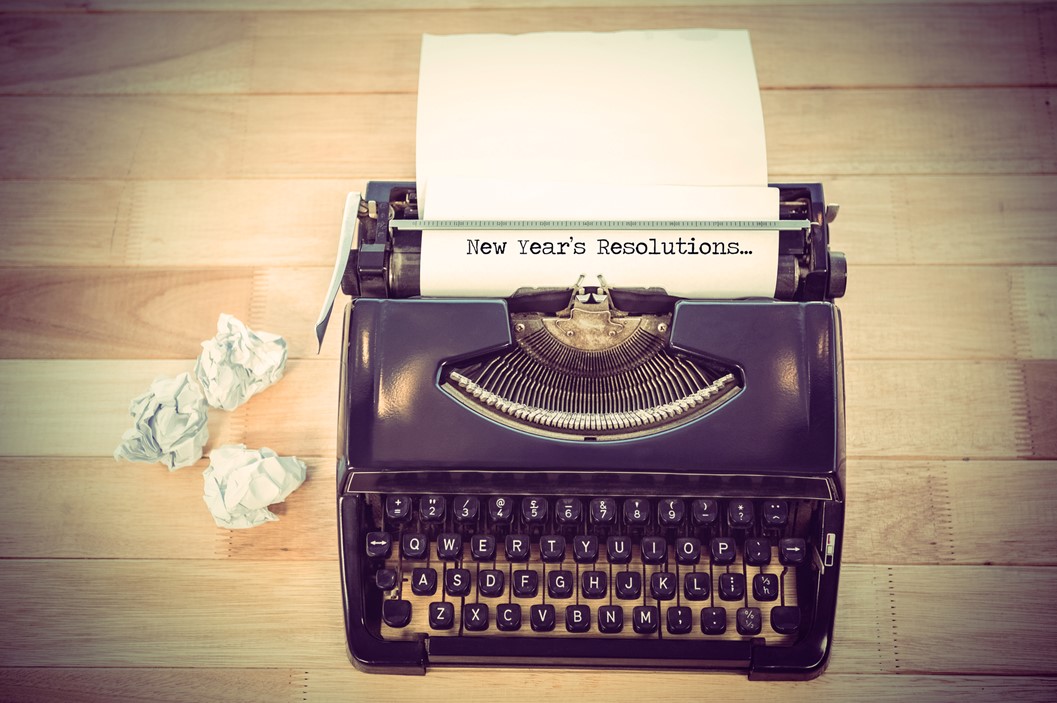The new year is a time full of celebrating milestones from the previous year and looking ahead with hope for what’s to come in the next year. Many people make New Year’s resolutions in hopes of achieving a personal goal, making big changes, or finally kicking that bad habit. But often, people end up feeling anxious and stressed by the pressure to meet these goals and live up to unrealistic expectations. Even more, studies show that about 80% of Americans will not keep their New Year’s resolutions, which can lead to even more frustration, disappointment, and stress.
So how do we work towards real change in our lives? Lasting and meaningful change happens most effectively when we accept where we are, without judgment, and take a balanced approach towards our goals. Dialectical Behavior Therapy (DBT) can help us in making realistic New Year’s resolutions that stick. The foundation of DBT is the idea that two opposite things (such as acceptance and change) can exist together in harmony and help us achieve better outcomes when it comes to changing behavior. Using radical acceptance and a non-judgmental approach to assess where we are and where we want to be, is crucial to the change process.
What Is Radical Acceptance?
Radical Acceptance is a DBT skill used when life is not going the way we want or hope it would. Radical means “all the way, complete and total” (Linehan, 2015). It’s an acceptance that happens in the mind, body, and spirit. Radical acceptance means accepting reality, the way it really is and choosing to embrace rather than fight against what is happening. We cannot change our reality without first accepting it. Why bother accepting reality?
- Rejecting reality does not change anything about our current circumstances.
- Refusing to accept reality can keep us stuck in bitterness, anger, unhappiness, and other painful emotions.
- True acceptance may lead to sadness at first but is usually followed by a deep calmness.
- Changing reality requires first accepting reality.
(Linehan, 2015)
How do I practice acceptance in my life?
At first, we may not even realize that we aren’t practicing acceptance in our lives. I encourage you to pause, take inventory of your emotions and thoughts about what you’re hoping to change or make a resolution for. Notice if any tension arises in your body or any feelings of disgust or disapproval. You may need to practice some acceptance. Here are practical steps for doing so:
- Notice your resistance as mentioned above. Many times, the ways we resist are unconscious and habitual.
- Gently remind yourself that reality is just as it is and there are always causes for the reality of this very moment.
- Practice acceptance with your whole self; mind, body, and spirit. This looks different for everyone but get creative with how you practice self-acceptance. You might journal, use a guided meditation on acceptance or self-compassion, prayer, imagery, or relaxation techniques.
- Use a non-judgmental approach. Accept the facts and try not to judge yourself harshly or critically. Typically, when we are hard on ourselves it keeps us stuck rather than pushing us towards change. (Here is a great exercise to practice this.)
- List specific behaviors you would do if you did accept reality, then act in accordance.
- Imagine yourself coping in healthy ways with the area that you are struggling to accept. Rehearse in your mind what you would do if you accepted what seems unacceptable.
- Allow for the painful emotions to arise within you (grief, sadness, disappointment). This will help you move through your experience towards acceptance.
- Practice. Remember, acceptance is a skill, and takes time to learn.

How do I set realistic new year’s intentions and work towards change?
Now that we understand how acceptance impacts change, we can more effectively set New Year’s resolutions. First, I recommend rethinking using the word resolution and trying to set intentions for yourself and the new year. Resolutions are firm, determined goals that are either achieved or broken. Intentions are broader, a willful direction, that help guide your actions and your life. Setting an intention for yourself considers the reality of where you are starting and the reality of the ups and downs of life. It is more about the process and the holistic change, rather than a very specific outcome. Other steps to take in setting realistic intentions for the new year:
- Be realistic. Setting an intention that you can easily incorporate into your daily routine will make it more likely for you to continue.
- Be mindful and stay present. When we practice mindfulness in our daily lives, we feel more fulfilled and purposeful, which will help us both enjoy and achieve our goals.
- Talk about your intentions with a trusted person in your life. This will provide support and accountability, which only helps improve the likelihood of sticking to our plans for change.
If you are still feeling stuck and struggling with where to begin, you might try starting with just one word. Pick a word that represents your intention for the upcoming year. A word that inspires, challenges, or encourages you. You might ask yourself the following questions to help you decide upon your intention for the New Year:
- What do I want to keep working on?
- What is important to me?
- What are things I still want to achieve?
- What word or phrase lifts me up and gives me hope?
- What feeling or ideal do I want more of in my life?
May you be filled with acceptance and compassion for yourself, right where you are in this moment. Happy New Year!
Blog written by Sentier therapist, Tana Welter, MSW, LICSW.












